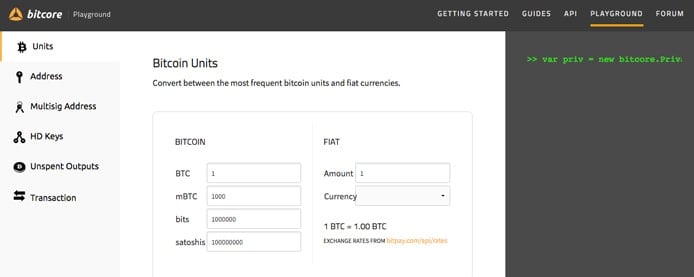
TL;DR: Streamlining blockchain transactions from wallet to checkout, BitPay helps businesses easily and securely accept bitcoin payments. By partnering with popular eCommerce platforms and point-of-sale systems, BitPay allows for seamless integrations that reach global customers. The platform instantly converts the bitcoin and deposits money directly into a merchant’s bank account, mitigating the risk of price volatility. The world’s largest bitcoin payment processor, BitPay open-sourced its wallet and internal development tools to give developers a head start on bitcoin and blockchain apps.
When UX designer Jason Dreyzehner first became interested in bitcoin around 2012, only a handful of noteworthy companies were dealing with the cryptocurrency.
“Bitcoin companies have significantly higher security risks,” he said. “There’s something very different about this industry, where you have to consider security a whole lot more than even banks do.”
BitPay’s interesting approach to bitcoin stood out to Jason — the company doesn’t hold other people’s bitcoin but rather converts it to regular currency and deposits it into customers’ bank accounts. Jason liked this vision of letting people control their own money, and he joined the team as a software engineer before eventually becoming the company’s Head of Design.
None of the other companies he looked at still exist. In 2013, bitcoin trading platform GBL shut down, with subscribers losing as much as $5 million worth of bitcoin. In 2014, bitcoin exchange Mt. Gox declared bankruptcy after it lost $473 million in bitcoins. Several other bitcoin startups that didn’t shut down in 2013 or 2014 closed their operations in 2015.
BitPay, however, has grown to become the world’s largest bitcoin payment processor and handles more than $1 billion each year in transactions. Whether enabling companies to accept bitcoin payments or enabling users to store cryptocurrency on a secure mobile app or debit card, BitPay makes cryptocurrency more accessible to users without sacrificing security.
“BitPay really understands that paradigm shift and gives total control to the user,” Jason said. “You don’t have to be worried about if there’s going to be another big hack or if another big bitcoin company is going to disappear. BitPay’s model is very resistant to problems like that.”
Helping Small and Medium Businesses Securely Accept Bitcoin
Accepting bitcoin through email, a company website, or even in a brick-and-mortar store tends to bring a new demographic of customers, according to Jason.
“The most valuable reason why many of our customers accept bitcoin through us is because we make the integration really, really easy,” he said. “None of our merchants need to know the details about how bitcoin works or what’s happening on the networks. We are managing changes to the networks.”
BitPay does all the heavy lifting for a 1% transaction fee — less than the 3% credit card companies typically charge. The company partners with some of the most popular eCommerce platforms and point-of-sale systems, Jason said, and the payments can be disbursed in a local currency, bitcoin, or a combination.
Safely accepting bitcoin entails advanced security measures beyond what many businesses are accustomed to. For example, some of the biggest merchants using BitPay process millions of dollars in payments a year across various currencies, and many people have access to production servers. Server access logs give those companies recourse in case something goes wrong with code updates. Bitcoin works a little differently, however, in that there is no way to reverse a cryptocurrency transaction — even if it’s a fraudulent one or simply an error.
“With bitcoin, if someone steals all of your cash flow for two days, that’s a much bigger deal,” Jason said. “If you’re a large company that has millions of dollars in sales a year, the last thing you want to worry about is how you’re going to harden all of your production infrastructure for this one payment method.”
Open-Source Mindset Garners Valuable Feedback and Contributions
BitPay open-sources its wallet and makes internal development tools available to others, as well. This helps get important software out into the world, where people can benefit and build on it. As such, BitPay gets valuable contributions back from other open-source developers.
Because some of BitPay’s team works on open-source development projects in the cryptocurrency space, the company tends to know what’s coming down the pipeline two or three weeks before something becomes general knowledge.

During his time with BitPay, Head of Design Jason Dreyzehner has witnessed other bitcoin companies come and go.
“We’re able to stay on the edge of the industry,” Jason said. “We get to contribute to the community, and we get really valuable stuff back. There are lots of people out there who like this stuff. Someone might realize there’s a little issue with something, fix it really quick, and share it with us. That stuff is really helpful.”
Jason credits BitPay’s open-source mentality to Co-Founder and CEO Stephen Pair, who also acts as one of the company’s technology leaders. In addition to unlocking technological advancements in the open-source realms, the decision to share code comes with large benefits to the business side of BitPay.
“We’re able to do what we do, use our open-source software, and not worry about patent trolls,” Jason said. “When you’re doing lots of interesting stuff, and you’re actually making valuable products, the patent system can be more of a threat than it can be valuable.”
Bitcore Gives Developers a Head Start on Bitcoin and Blockchain Apps
BitPay openly shares Bitcore, a modular node for bitcoin and blockchain-based apps, making it easier for developers to build apps that interact with the bitcoin network. In addition to the software stack, the company also makes the accompanying Javascript library freely available, which runs server-side on Node.js and client-side within a web browser.
“If you understand the primitives of bitcoin and have a general idea of how bitcoin works, you can use Bitcore to make your own wallet or your own utility, and Bitcore handles all the primitives,” Jason said. “We make those very simple functions so that other projects can just import Bitcore and use the general primitives instead of messing with the details of bitcoin.”

BitPay makes its Bitcore platform available to developers and gives users a playground where they can test code.
BitPay uses Bitcore internally as the base for many projects, along with keeping track of the bitcoin and Bitcoin Cash chains.
“Releasing it to the community was a no-brainer,” Jason said. “It allows us to ensure that what we’ve built and are using internally is resilient. We get as many contributions as we can from the community and protect ourselves on the intellectual property front. Really, though, bringing it to the community also means we get to see the really cool applications that are being built that we don’t necessarily have the time for.”
New This Year: Revamped Wallet and Support for Bitcoin Cash
At the end of March, BitPay announced that its merchants could accept payments in Bitcoin Cash, a cryptocurrency with a market cap of more than $15 billion. This change expands the reach and scale of companies working with BitPay, as Bitcoin Cash typically boasts faster transactions and lower fees. This makes Bitcoin Cash ideal for app downloads, food delivery, video games, or other low-cost transactions.
Up next, the BitPay team is gearing up to release a new version of Copay, the open-source platform behind its wallet.
“The next version is a major upgrade architecturally,” Jason said. “The whole architecture and platform have been reworked to use the latest version of the technologies we originally built Copay with.”
The updates were recently moved to the master branch in the project’s GitHub repository and have been in release candidate testing for several weeks. In fact, Jason said the company has already received a few code contributions from users.
“Basically, if you’re using it on a phone, it feels way, way better,” he said of the revamped platform. “Not much has changed in terms of the UI, but it’s much, much faster and more performant. It feels very good now.”
HostingAdvice.com is a free online resource that offers valuable content and comparison services to users. To keep this resource 100% free, we receive compensation from many of the offers listed on the site. Along with key review factors, this compensation may impact how and where products appear across the site (including, for example, the order in which they appear). HostingAdvice.com does not include the entire universe of available offers. Editorial opinions expressed on the site are strictly our own and are not provided, endorsed, or approved by advertisers.
Our site is committed to publishing independent, accurate content guided by strict editorial guidelines. Before articles and reviews are published on our site, they undergo a thorough review process performed by a team of independent editors and subject-matter experts to ensure the content’s accuracy, timeliness, and impartiality. Our editorial team is separate and independent of our site’s advertisers, and the opinions they express on our site are their own. To read more about our team members and their editorial backgrounds, please visit our site’s About page.

